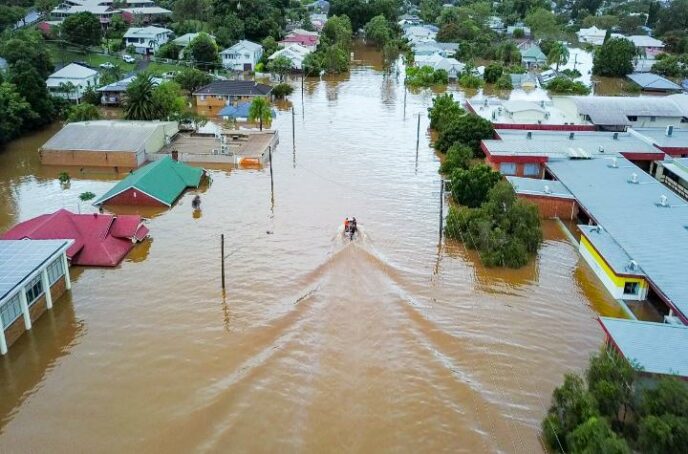The Insurance Council of Australia (ICA) has welcomed assistant treasurer Stephen Jones’ announcement of a Parliamentary Inquiry into insurers’ response to the 2022 floods.
That year was a record for insured losses, driven by flooding in Northern New South Wales and South-East Queensland in February-March, in the Hawkesbury-Nepean in July, across three states in October, and in the Central West of New South Wales in November, the council explains.
“Those events have so far cost $7.17 billion in insured losses from more than 300,000 claims,” it says.
That included vehicle claims, with car yards among claimants.

The Insurance Council and insurers held 59 community forums across flood-impacted regions, directly assisting more than 1900 insurance customers in four states including in the Central West of New South Wales.
In April this year the Insurance Council commissioned its own independent review of insurers’ response to the February-March 2022 floods, which is due for release in October.
That review will look to identify lessons learned from insurers’ response to the floods – both from good practice and practices requiring improvement – to better prepare and inform the industry’s response to future extreme weather events in a changing climate, the council explains.
The Insurance Council also welcomes the inclusion in the Parliamentary Inquiry of the impact of worsening extreme weather events, supply chain issues, and skills and labour shortages.
In addition, the Insurance Council is urging the Inquiry to examine the impact of state insurance taxes on customers’ capacity to appropriately insure, as well as how the impact of past decisions on land use planning and disaster mitigation impact community risk and insurability.
The council says it has long been calling for greater investment in resilience measures to better protect homes and communities from worsening extreme weather events.
Two weeks before the February-March floods the ICA released its Australia report, which identified those areas of Australia most at physical and economic risk from worsening extreme weather.
Many of the communities identified in the report were impacted by flooding in 2022, highlighting the urgent need for action.
The issues facing extreme weather-exposed communities and Australian insurers are not unique, with very similar circumstances occurring in places such as California, Florida, New Zealand and the UK, the council adds.
“These jurisdictions provide many salient lessons on appropriate policy responses to this issue that should also be considered by the Inquiry.”
ICA chief executive Andrew Hall says insurance is vitally important to Australian families and business and to the economy, giving people and businesses the protection and confidence to grow and prosper.
In 2022 insured losses across all categories totalled $36.5 billion from five million claims – meaning last year one quarter of adult Australians made an insurance claim.
“Any review that supports the ability of insurers to improve how they carry out their crucial function is welcome, and we look forward to participating,” says Hall.
“Following three years of La Niña conditions and the pandemic, the 2022 floods stress tested the systems insurers use to respond to customers.
“This was exacerbated by issues such as a shortage of expert assessors, building labour and materials constraints, and the complexity of recovery and resilience programs delivered by state governments,” he adds.
“We strongly support the Albanese Government’s focus on improving the resilience of Australian homes and communities against extreme weather events, but more needs to be done to ensure insurance remains sustainable as the climate worsens.”
Financial services minister Stephen Jones says his goal in establishing the Parliamentary Inquiry is to improve the experience for consumers impacted by natural disasters.
He adds insurers need to be proactive and prepared to respond as the last thing people needed when they’ve lost their home or their business is navigating complex claims processes or waiting months for materials and workers.








